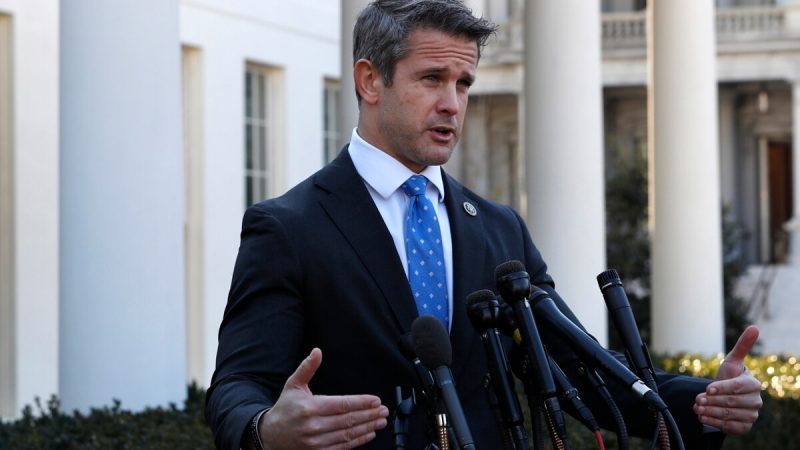Liberals Playing Blame Game After Brexit: ‘It’s Everyone Else’s Fault!’

As the world tries to make sense of the Brexit, which has no linear explanation given that there were absolutely many types of cooperating and competing motives that swayed voters, one of the easiest and most popular views attempting to clarify events, mouthed by liberals in both the US and beyond, is that the cosmopolitan, multicultural fabric of the European Union was rejected by a bunch of alt-right jerks with crooked teeth, low IQs and a sympathetic ear to the growing far right cloud that is creeping over the continent.
I want credit henceforth for any emerging conspiracy by mainland Europe to kick the UK out over its native cuisine.
In any case, these liberals would be right about specific elements which helped voters make up their minds, but this is not the whole picture and by missing the whole picture these liberals are committing the same error which added to the many right-wing elements of the Brexit: smug, elitist faith in institutions which say nice things and crush the working class with policy.
Adding to the confusion is the lumping in of leftists whose unrealistic ideological purity hath enabled the English, and ultimately European, rightward shift toward politics which embrace xenophobia, misogyny and rampant nationalism. And let’s be clear, these things absolutely matter and absolutely influenced votes, but we who stand against such things will end up reinforcing them by focusing on them as the only viable reasons that anyone could have had for wanting to leave the European Union. As if another view was so wholly unimaginable.
There were plenty of reasons to leave the EU, many of them stemmed from undemocratic, neoliberal policies that left millions on the outs as austerity programs have ripped across the continent in order to appease the financial elites.
You know, like the Democrats do in the US!
And like they’re poised to do if Hillary should assume the presidency come November!
As Joseph Richardson, writing for Counter Punch, notes in the opening paragraph of his take on Brexit and the left:
Why is it that many people who consider themselves left-wing have such difficulty grasping that the EU is a deeply reactionary institution? The mere fact that those running the EU present it as an internationalist venture dedicated to the creation of a world free of nationalist enmities does not make it so. If we want to examine the EU in its proper light, then we should ignore the high-flown rhetoric in which its supporters indulge, and consider its actual record.
This is important. As Richardson points out, unelected officials in Europe assume more power and their influence in forcing a neoliberal doctrine on the continent cannot be overlooked by anyone giving more than a casual observance to the situation. The results have been broadly negative for Europe’s working class as big business and finance hold the influence over policy which has wrought unemployment and austerity all over.
Richardson continues:
“What the EU did to Greece should have dispelled forever the fanciful idea that such an institution has as its fundamental aim the material welfare of ordinary Europeans. But such is the power of the delusional thinking which holds sway amongst the ‘liberal’ apologists for ‘internationalism’ that nothing it seems, not even the destruction of an entire country, the decimation of its industries, and the despoliation of its people, can shake their belief in the manifest virtues of the EU.”
If Brexit were a political party as opposed to a referendum, it might be likened to a right-winger’s Syriza. Syriza was supposed to be a bold, left lesson for the EU as they declared that they would not impose the Union’s austerity measures on the country any longer. Until of course they were voted into power and did just that — with the full blessing of the European Union.
Blessing is a nice word. With a gun to Syriza’s head, the ECB basically pulled the trigger in cutting off emergency funding to Greece, further exacerbating what had already been five years of climbing unemployment, austerity and budget cuts for social programs and the selling off of public infrastructure. These were the scars leftover from blissful, cosmopolitan EU policy.
In the United States, we often concentrate on the overt racism of many Trump supporters. Hell, even Republicans are calling remarks from The Orange One himself, “racist”. And while some are abstaining from supporting Trump in light of the way he has “campaigned”, and the remarks he has offered up to the American electorate about Mexicans, Muslims and women, others still note the bad and will line up to punch their ticket for him come November.
And, see, we’re going to call all of those people out, right? The Paul Ryans out there who admit that Trump is pretty awful, “but…”
Those stupid conservative crypto-fascists prating on and on about guns, jerbs and Islams, right? Turns out, team colors have some pull on our feeble human brains.
Many people turn blind, uncritical eyes to things which originate among people and institutions we trust or like, and even when wrongs are identified there’s a certain reluctance in our species to acknowledge it. Let’s call it, cognitive dissonance, or #ImWithHer.
I’ve actually been to two Trump rallies. Both in the same forgotten Rust Belt city of Rome, New York — smack dab in the center of the state, which also happens to be its poorest and “reddest” part. It didn’t take much time, talking to his supporters to deduce, beyond the demagoguery, why they were there. Jobs. Immigration. The belief that Trump could “win” trade agreements. The belief that he can’t be bought out.
The face-stomping boot of neoliberal economics can place people on the left and the right in a Venn-like situation. And that’s the point. Policy creates a reality wherein even opposing sides will identify problems in common, though they will seek different means to resolve them.
In New York’s Rust Belt, neoliberalism, aversion to unions and free trade colluded to bleed the area dry of jobs. The high taxes don’t help either, but that typically comprises yet another one-sided approach to analyzing a much denser set of reasons for decline which apply to cities throughout the Rust Belt. I don’t know if the UK has a Rust Belt, but I do know that some of the towns that largely voted Leave have faced the full force of austerity for 40 years.
Clearly this will create an environment of problems where an individual’s worldview brings them to certain conclusions and solutions.
Stateside, the Democratic Party, though, has not really addressed American austerity with policy. Given the proximity and revolving-door nature of a sniveling git like Larry Summers who has long slimed his way into providing neoliberal coaching to presidential administrations from Reagan to Obama, liberals, who have largely supported Democrat policy, don’t have as strong an argument as they have already convinced themselves of having: They’ve really just been helping create the externalities that they lay down at the opposition’s feet.
So goes the sentiment that conservatives often vote against their best interests, true, but is the other side even offering tangible alternatives apart from sounding like they may? A job that leaves the United States is a job that leaves all workers, regardless of education level, race, creed, or the straightness of their teeth.
Free trade deals like NAFTA and the TPP happened under whose watch? And NAFTA wasn’t just bad for working class Americans (especially farmers), but helped torpedo the economies of nations under US influence since the Monroe Doctrine, sending millions heading north for low-wage, but invariably extant opportunity.
Concerns over Europe’s shift to the right, as well as concerns that Trump’s brand of fascist-invoking speech here in the US, that do not take into account the historical role that economic decline plays in providing opportunities for these things to grow are doomed to reinforce them, in part, by creating the illusion of elitist smarty pants, smartly reading their leather-bound books while the mouth-breathing racists watch NASCAR and drink Bud Light here while their transatlantic brethren incite soccer riots (but probably still drink better beer).
These comparisons abound in a logical fallacy that divides the working class. And while you can’t win ’em all, you can do a lot better by trying than just writing people off because of what they appear to represent or even stand for. Point being: Not every Leave vote was cast by a racist in the UK. There are legitimate problems with neoliberal policy that assuredly influenced votes. The opportunity to act presented itself, and it was taken amid all of the narratives that would explain such a crushing vote in a way to make people feel better.
In May 2012, I was assisting other activists in organizing around a construction project which saw contracted workers get burned by the developer. There was a strike, the developer began hiring scabs, many of which were undocumented, and tensions rose.
Immediately, class differences and nationalism came right to the forefront. The originally contracted workers were pissed that undocumented scabs were taking their jobs, and for all intents and purposes, they likely were the same working class conservatives guilty of many silly tropes thrown in that direction.
Does this sound familiar yet? Parallels coming to mind?
The smallest differences in class promote a sense of superiority that those who have it are often reluctant to abdicate. Worse, to see people be handed opportunities as opposed to work for them is difficult to reconcile, and since nobody whines quite like the majority, fascists have shown historical aptitude for focusing on that and cultivating that whining into an agenda. For capitalists, it’s the fuel that drives the engine of competition.
While we were assisting those contracted workers, we got them to see things from a broader angle. The scabs weren’t a foreign enemy to be ratted out and deported, they, too, had families to take care of, and they, too, were being exploited right along with US citizens. We extended a hand to aggrieved workers and in return, they were mindful of what we explained to them of the nature of manipulative bosses. We even got those originally contracted workers to rescind on threats to call ICE on the undocumented workers hired in their stead.
That the right seized an opportunity doesn’t simply mean that that was all there was to the story. Liberals have had a hand in delivering the “democracies” of the West over to their oligarchs as much as anyone, but it’s okay for liberals to blame the victims this time as long as there’s a convincing argument that those crying foul hold abhorrent racist views because they’re more easily discredited than facing up to the hand they’ve played in assisting the burial of the working class.
I would probably have voted Remain myself, but that would be with the recognition of the problems of the EU and the hope that should there ever come a breaking point, that the left would be in the driver’s seat.
But, the referendum came as the continent sees a rising tide of anti-immigrant sentiment and it didn’t take much to thrust that into the spotlight, again, among a myriad of other policies which have given more power to elites and financial institutions, and we don’t need more reminders that appeasement emboldens fascists.
In the States, there’s a lot of parallel with the Democratic Party. And while I, as a leftist, don’t disagree with the arguments against the more notorious motivations of Leave voters, and find myself sympathetic to the general liberal worldview, that worldview is simply not what the UK was getting, nor what the rest of Europe will get. That needs to be admitted by liberals of any nationality.






